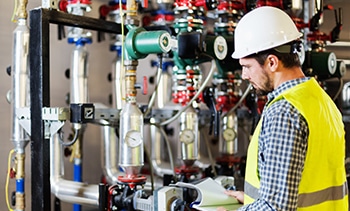 Production engineers are responsible for planning and overseeing the production or manufacturing processes of a company. They have knowledge and expertise to analyze different processes in manufacturing and identify weaknesses to reduce waste and provide quality assurance.
Production engineers are responsible for planning and overseeing the production or manufacturing processes of a company. They have knowledge and expertise to analyze different processes in manufacturing and identify weaknesses to reduce waste and provide quality assurance.
According to the top job agencies in Toronto, production engineering opens up a myriad of job opportunities in the manufacturing sector. Read on to learn how to become a successful production engineer and obtain a good manufacturing job.
Becoming a Successful Production Engineer
Education
The first step to becoming a production engineer is to get a bachelor’s degree in Industrial or Manufacturing engineering. Some employers may also look for candidates having a master’s degree, especially for research-oriented manufacturing jobs. In addition to this, proficiency in specialized areas such as quality control and logistics and supply chain management can be an asset. This can help you land a job in the related fields that require distinctive knowledge of the operations.
Experience
It helps to gain practical experience in the field before looking for a job as a production engineer. Degree programs in manufacturing engineering often offer an internship. This will aid in your job search as employers often give preference to candidates who have working knowledge along with classroom education.
Skills
Production engineers are required to have skills that can help them develop solutions to manufacturing problems. It helps to possess the following:
- Problem Solving Ability
It is useful to have the ability to think on your feet and develop solutions to production problems that may occur in the organization. This will help avoid unnecessary expenses and save time, thus benefitting the company in the long run. - Good Communication Skills
You should have strong oral and written communication capabilities. This will help maintain a clear stream of messages in the team at all levels and ensure that there are no misunderstandings leading to delays in the production. - Understand Technical Information
In addition to having the ability to interpret any information, you should also have the skills and expertise to simplify it. This will help other non-technical staff members to understand it. - Listening Skills
As a production engineer, you should have the ability to listen to your team members as well as those working under you. This will help improve the production process.
Licensing
According to the experts in job agencies, you should be licensed as a Professional Engineer or P.Eng. in Canada. This will allow you to supervise other engineers and technicians and exercise control of a public project. However, you may still work on projects under the supervision of a licensed production engineer even if you are not licensed. Although most employers may not require you to be licensed for entry-level jobs, obtaining a license can help you advance in your career.
We Can Help You Find a Manufacturing Job as a Production Engineer
 At Winters Technical Staffing, we have the experience and resources to help you land a job in your area of expertise. Our specialists will understand your needs and come up with accurate solutions in the form of suitable job opportunities.
At Winters Technical Staffing, we have the experience and resources to help you land a job in your area of expertise. Our specialists will understand your needs and come up with accurate solutions in the form of suitable job opportunities.
For more information about the openings for a production engineer, you may want to check out our Job Listings. You could also get in touch with our staffing consultants by calling 647-556-2408 if you have any questions.


